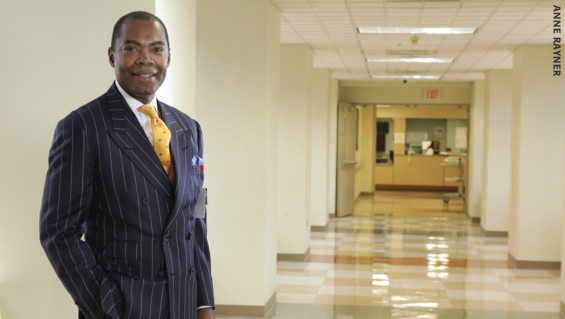Keith Churchwell
Keith Churchwell, M.D.
Executive Director and Chief Medical Officer, Vanderbilt Heart and Vascular Institute
What are the major changes you think will come to Vanderbilt and the Medical Center over the next 10 years?
We have planted the seeds of change on how technology can have a major impact on how we take care of patients here at the Medical Center and in our outreach offices. In the next 10 years we will truly incorporate digital technology and information, to enhance the patient experience, make our patients knowledgeable about their medical problems and help them take actions that will improve their overall health.
Where do you see the seeds of those changes now?
The high tech initiative has helped to catalyze efforts across the Medical Center to use the power of what has been developed over the past 20 years to take us to the next level. The use of tablet technology and our ability to access imaging data from everywhere—home, on the road, the office—gives a real idea of what is possible.
What is happening now at Vanderbilt that has a chance to have impact all over the world?
The ideas and projects that have sprung from the personalized medicine initiative have a chance to make a tremendous impact on how medicine will be practiced in the future.
What are the biggest obstacles or challenges Vanderbilt and the Medical Center will face in the next 10 years?
Medical technology does not stand still; it is always evolving and developing new ways to image and evaluate the body to obtain precise and extremely accurate evaluation of disease processes. How to keep up without breaking the bank continues to be a tremendous challenge.
What are your hopes for Vanderbilt and the Medical Center in the next 10 years?
That its unique culture of multiple groups easily working together to come up with solutions regarding the important issues that face us does not change
Where do the greatest opportunities to improve heart health lie?
New medications, new technology and better education are our greatest opportunities to impact heart health. We have come to terms with the knowledge that we have to better educate our patients about their medical problems to have greater success with their long-term treatment. We primarily offer short-term solutions to lifelong problems. We have to arm our patients with better tools—medicines, technology and understanding—so that they can meet the challenges of cardiovascular disease with greater lifelong success.


Leave a Response